Fiscal Sponsorship and the Path to Non-Profit Status
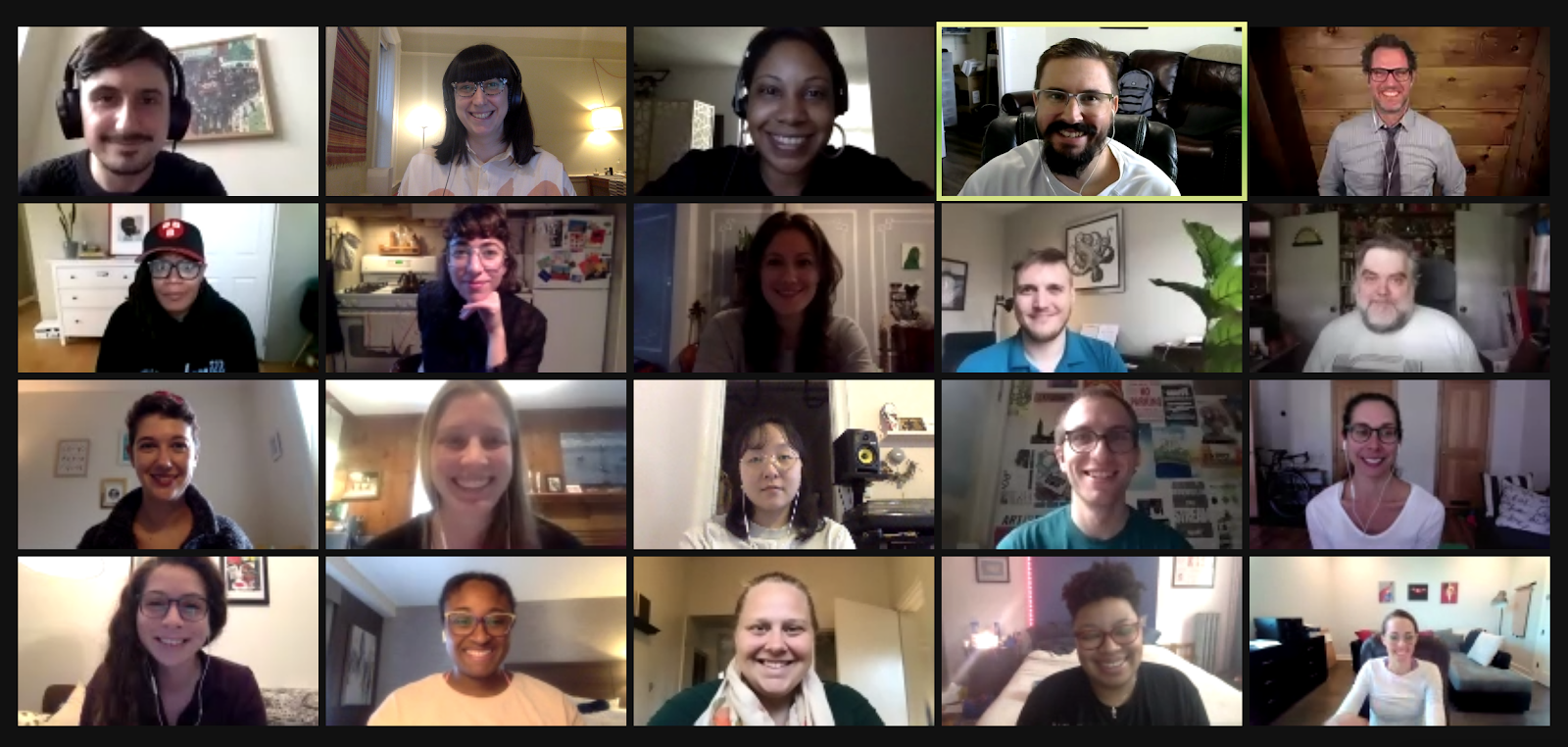
The Team at Fractured Atlas.
Jeffrey Mosser: Dear artists, welcome to another episode of the From the Ground Up Podcast produced for HowlRound Theatre Commons, a free and open platform for theatremakers worldwide. I’m your host, editor, and producer, Jeffrey Mosser, recording from the ancestral homelands of the Potawatomi, Ho-Chunk, and Menominee homelands, now known as Milwaukee, Wisconsin.
These episodes are shared digitally to the internet. Let’s take a moment to consider the legacy of colonization embedded in the technology, structure, and ways of thinking that we use every day. We are using equipment and high-speed internet not available in many Indigenous communities. Even the technologies that are central to much of the work we make leaves a significant carbon footprint contributing to climate change that disproportionately affects Indigenous people worldwide. I invite you to join me in acknowledging all this as well as our shared responsibility to make good of this time, and for each of us to consider our rules of reconciliation, decolonization, and allyship.
Artists, thank you for joining me today on an episode that takes a short departure from the arc of the conversation we’ve been holding thus far. So far this season, we’ve been talking about producing, shared leadership, and touring, but I wanted to turn back to a step in the process that might come far before we even consider some of these things. If your theatre wants to receive funds as a charitable organization but you are not yet a nonprofit 501(c)(3), you can use a fiscal sponsor to serve as an administrative home for your finances. I got really curious about this process of fiscal sponsorship back when I was starting my own theatre company. So I started following Fractured Atlas, and I really started to understand the needs beyond obtaining the nonprofit status.
Let me also say that I never actually used Fractured Atlas for my fiscal sponsorship, but I observed other theatre companies who did—which is all to say that this episode is not some sort of advertisement. And as you’ll hear my guest say, they are but one of several organizations that does such work. The organization has just stayed on my radar for several years and I’m interested to hear how they’ve grown and what they now provide.
For today’s interview, I invited associate director of programs, Colleen Hughes, to help me suss out what does fiscal sponsorship mean? How does Fractured Atlas assist beyond that? And what trends has she seen throughout the pandemic in terms of fundraising and giving? Fractured Atlas serves several artists from several walks, and while we’re focusing on theatre in this conversation, she does bring in a few ideas from non-performance-based artists. One thing I have to remark on is how she points out the growth of social justice artists. Colleen and I talked on November 2, 2021, and she joined me from Munsee Lenape ancestral lands, now known as Brooklyn, New York. Enjoy.
Colleen Hughes: Hello?
Jeffrey: Hi, how are you?
Colleen: I’m good. How are you?
Jeffrey: Good. Good to meet, connect, look at your face. Thank you so much for being here today and taking time to do this. I really do appreciate it. And—
Colleen: Of course.
Jeffrey: So I just want to start out by knowing a little bit more about what you do at Fractured Atlas, since you’ve been there for a few years now and I’d love to know how sort of it’s evolved and maybe what you're doing now.
Colleen: Absolutely. So, my title is associate director of programs at Fractured Atlas. I’ve been there for a little over four years. I actually started as a program associate and then became the program coordinator, and I have the role I have now. So I have really kind of seen almost every facet of our programs department and what programs is, right? Like, it is our fiscal sponsorship, it is serving our members and artists, really making sure that people are able to access and use our services and serving those folks. When I first started, we had a variety of programs, so not only did we have fiscal sponsorship; we also had a ticketing platform. We had insurance. We had a space rental platform. And over the years, we have made many strategic decisions to kind of pare down our platforms and programs to what we do best, which is fiscal sponsorship.
So at the moment, we have our fiscal sponsorship program, and then we also have our visa letter program which helps international artists come and work in the US. And those are kind of our sole focuses. But yeah, I would say on a daily basis, I’m really kind of supporting our entire programs team, and we are generally working our hardest and fastest to support our artists and members in different ways. And that can be providing grant reviews, helping folks set up their crowdfunding campaigns on a very granular level of reviewing things like fund release requests. Part of fiscal sponsorship is oversight over the activities of our projects. So there are just administrative duties that are required with that. But yeah, just kind of keeping the wheels moving.
Jeffrey: Grant reviews, do you mean that you’ll review someone’s application for a grant?
Colleen: Yeah. So it’s actually required as a part of our program. So again, it’s part of the oversight of our fiscal sponsorship program that we require projects to send us their grant applications before they send them to the funders. And we are more than happy to provide feedback and insight. We don’t write grant applications for our projects—so I just want to make that distinction there—but yes, very happy and actually, required, to review all grant applications.
Jeffrey: And then do you also provide visas for artists looking to tour outside of the United States as well?
Colleen: No. So the only visa work we do is international artists coming to the US, and what we provide is called a peer advisory letter. So, I always say I’m certainly not an immigration expert, but part of the application process of admitting to the US to prove that you are an artist—the phrasing they use is artist of extraordinary ability—is a variety of support materials, including letters from unions or peer organizations, like an arts organization such as Fractured Atlas. And basically, our letter says: We see and think that this artist is in fact an artist of extraordinary ability. We have the experience and the knowledge to say that, and we have no objection to them being awarded a visa to work here in the US.
Jeffrey: I’m sure the pandemic put a pin in some of those visas and touring and travel, but about how many of those do you facilitate a year?
Colleen: Ooh, that is a great question. Like you said, because things have been fluctuating, I don’t have a number off the top of my head. But with the pandemic in mind, I would actually say more than you think. Obviously, things slowed down at the height of COVID, but now that travel has reopened and we’re able to start planning things again, we are getting, I would say, five to ten every one to two days.
Jeffrey: Wow. And then what kind of venues are those artists of extraordinary ability visiting here in the US then?
Colleen: It really runs the gamut. We write peer advisory letters for folks who are going to be shooting movies in California or doing shows here in New York or writing copy and being a graphic designer for like Google or Facebook. Or, this morning, I reviewed one for someone who was a pattern maker for a fashion house. So it really, really runs the gamut.
Jeffrey: What brought me to Fractured Atlas and to wanting to speak with you in the first place was the idea of fiscal sponsorship. And you touched on it earlier, but I’m wondering for anyone who may not know, can you talk a little bit more about fiscal sponsorship and how does Fractured Atlas do that for others?
Colleen: Yeah, absolutely. So on a basic level, fiscal sponsorship allows a 501(c)(3) to offer some of the benefits of that 501(c)(3) status to others who are not a 501(c)(3). So what that actually means is that Fractured Atlas, through an application process, is able to basically receive donations on behalf of our fiscally sponsored projects, issue tax receipts to those donors, and then the projects are able to access the money that we are able to collect on their behalf. So there are some fees associated with that, right? So we ask folks to become a dues-paying member. So that’s either $10 or $20 a month to maintain your active fiscal sponsorship with us. And then then we also collect an 8 percent administrative fee from all donations that we process for our projects. And then the other thing, like I said, is there is an application process.
For Fractured Atlas, it’s a fairly simple application. We want to know what are your artistic activities? We are an arts exclusive fiscal sponsor, so if you are not an artistic project, unfortunately we can’t sponsor you, but there are a lot of other fiscal sponsors out there in the world who may be able to help you out. And then on top of that, you need to tell us what the public benefit is. There does need to be some sort of public benefit or charitable benefit since we are a 501(c)(3). And then we just need to know kind of a brief overview of your income and expenses that you expect for the project. But that is just to give us a sense of the scope of the project. We don’t hold people to it. If you either go above or below budget, it’s no big deal. I feel like some people get a little stressed by the budget stuff when they look at the application, and I promise, it’s not a big deal.
Jeffrey: Can you go into that idea of public benefit a little bit more? And what does that mean? How do you see folks demonstrating that?
Colleen: Yeah, absolutely. So, I will say both for public benefit and for artistic activities, we really do try to take a pretty broad view. So for artistic activities, right? You can be an education company that is doing a visual arts program, or it can be a theatre company that’s touring your show. Or you can be an individual artist, like an individual photographer who is trying to get their work out into the world. So, it’s very broad. Similarly, with public benefit, the biggest thing that we tell folks is that the public needs to be able to consume it. If you are making this art just for yourself and never going to show it to the world, there’s not really a public benefit there. So that is kind of the biggest thing.
And then the other thing is the art that you are creating cannot be solely for profit. And I would argue most art in the world is not solely generated just to make money. There are maybe a select few individuals that you could argue are doing that, but as long as the public can consume it, as long as there is some sort of public benefit or charitable benefit—meaning other people are able to enjoy your work and you’re not generating it just to make millions of dollars—we consider it a charitable or public benefit.
Jeffrey: This podcast is theatrically focused. And so I’m wondering if you’ve seen in the past year throughout the pandemic, if you’ve seen any trends of theatres and how they are in need or using their finances at this time.
Colleen: Yeah, I think the biggest thing that we were seeing is the move to virtual tools and virtual platforms and needing to kind of rethink your budget in a virtual world. What are those new expenses? And then also a fair amount of people being like, “We just want to make sure our artists can live their lives, and eventually we’ll get back to in-person programming but, for now, our company members need to be able to pay their bills and eat.” So, I think that was kind of the biggest shift is really rethinking one: How do we create art in the middle of the pandemic and how’s that going to impact our finances? And two: How do we support our artists when we are not maybe generating as much art as we’re used to?
And then on top of that, I would say we saw a lot of projects—and I would say this is applicable to theatre, for sure, but also to all other disciplines where they were attempting to make art in direct response to everything that’s going on in the world, right? So, we saw a lot of projects trying to have conversations about race and Black Lives Matter at the height of the protests around George Floyd’s murder, and also just projects talking about isolation and what it is like to be alone in the middle of a pandemic and really rethinking the type of art and the conversations that are being had through theatre—and then obviously the funding that goes along with that.
And then in terms of kind of like the funder side of things, right? Lots of emergency grants were being launched just to make sure, again, that people are able to survive throughout the pandemic at a time when normally they would be producing work. So that was kind of exciting to see the philanthropic world open up a little bit and kind of loosen some of those restrictions that people have to deal with in order to access funding. To be totally frank, I don’t know that that’s going to last forever, and I think that things may kind of go back to where they were a little bit. But I do think conversations are being had as to like, “How do we actually make the access to funding more equitable and easier?” Which is exciting. I’m glad that those conversations are being had.
Jeffrey: Are these philanthropies supporting the greater idea of the theatre, or are they supporting just the emergency fund of things? Does that make sense?
Colleen: Oh, I think I see what you’re saying. The grants that I was thinking of, it was more so just the emergency need for funding as soon as possible type of a thing. I think you pose an interesting question though, and I just don’t know that we have enough information yet. Because I think at this moment the world is reopening; things are starting to stabilize. So, we’re moving away from the need from emergency funding, but things aren’t 100 percent “normal” again, right? And so I think funders haven’t really had time to digest what their emergency funding was used for and if they can redirect some of that to this kind of general funding in the future. Yeah, that’s kind of my thought process there.
Jeffrey: Yeah, no, have you seen any trends in granting beyond those emergency funds that you were talking about?
Colleen: I have seen a trend in folks trying to redirect funds to what are often referred to as marginalized communities. So, people really focusing on funding Black artists, people really focusing on AAPI artists. I recently learned—I don’t know if you’ve heard about this, but Kickstarter is collaborating with Creative Capital to funnel money to their artists of color projects. Have you heard about this?
Jeffrey: A little bit. Yeah. I mean, I haven’t dug into it. Certainly, I’m sure you have a finger on the pulse there.
Colleen: A little bit. I literally read about it yesterday. But I think that that is definitely a trend that we are seeing as well is that these philanthropic entities are definitely having conversations and really thinking about: How can they redirect their funds to support folks that previously didn’t have access to them? Clearly, conversations are being had and different strategies are being used in terms of, like, only opening an application to a certain demographic of people or only regranting to certain individuals. There’s a huge variety of the ways that people are trying to tackle this, but that’s definitely, I think, one of the biggest grants trends I’ve been seeing.
Jeffrey: I know that you offered up that Fractured Atlas does a lot of extra work beyond fiscal sponsorship, and you offer a lot of really great tools. What are some of the tools that you think would be most advantageous for a theatre company to be picking up at this point in time?
Colleen: Most of the tools that I am talking about are actually folded into our fiscal sponsorship program. So I briefly mentioned crowdfunding. We have our own crowdfunding platform that all of our fiscally sponsored projects are able to access. And there’s no additional fees or anything on top of the normal fees that I mentioned in order to access it, and it’s a keep what you raise platform, right? Unlike Kickstarter, it doesn’t matter if you reach your goal or not. And also, you’re able to access the funds almost immediately, so you don’t have to wait until the end of the campaign to tap into that money. We have a standard seven-day holding period for all donations before they’re available for the project to access. But after that seven days, it doesn’t matter if it was donated on your crowdfunding platform or you’re just kind of general support page, you can access those funds. So I definitely think our crowdfunding platform is a really great tool.
And then on top of that, every single project gets what we refer to as a general support page, which is a dedicated page that you can customize and collect credit card donations that way. So, you don’t have to worry about, like, using PayPal or setting up a Stripe payment process or anything like that. So everything is streamlined onto our digital tools. And then on top of that, we just have a lot of, in my opinion, awesome but also free educational tools, right? Like a basic fundraising setup process, basically your toolbelt, right? We have an entire toolbelt that you can access for free. We have a lot of webinars, we have an amazing, in my opinion, blog that our ER team works really hard to generate content for and is very on top of what’s going on right now and responsive to different things that are going on in the news and in the arts world. So yeah, I would say those are kind of the biggest tools that I would direct people to check out.
Jeffrey: What is the benefit of having a fiscal sponsor rather than incorporating yourself as an organization?
Colleen: There are a lot of projects who come to us, and they eventually want to become a 501(c)(3). But that takes time. Oftentimes you need to hire an attorney, you got to file a lot of paper with the IRS… And so this is kind of a temporary status for them, fiscal sponsorship with us, because they want to be able to fundraise and offer their donors and supporters a tax receipt. And so fiscal sponsorship offers that kind of stopgap between them deciding they want to become a 501(c)(3) and actually becoming a 501(c)(3). So, it’s really useful for that.
There are also, frankly, a lot of either individual artists out there or companies that decide, I don’t actually want to become a 501(c)(3), right? Part of being a 501(c)(3) is there is a lot of just, like, upkeep and auditing in order to maintain that status. You have to file annual paperwork with the IRS, right? You do need to very much keep on top of your finances. It is just a lot of clerical work to be a corporation and specifically to be a tax-exempt corporation. And so, people find that fiscal sponsorship is a lot easier for them and just more manageable because they’re still able to offer their donors the benefit of that tax deduction and also access a few other benefits of our 501(c)(3) status without having to maintain all of the paperwork and the labor and oftentimes hiring more people to maintain that 501(c)(3) status.
And then the third kind of bucket of people and benefit I would say is folks who actually want to have a for-profit wing and a nonprofit wing, right? So we fiscally sponsor basically any US tax entity. So, it could be you with your Social Security number, it could be your LLC, or it could be your corporation that happens to be a for-profit corporation, but you have a charitable mission that’s like a branch off of it. An example that I frequently give because I think they just do awesome work is we had a fashion company that used to work with us, and they obviously had this fashion house that was the for-profit entity, and then they also had a training wing where they would train people. They specifically focused on women who immigrated to the US, train them to sew, so that they would have this marketable skill able to go and get jobs.
So we fiscally sponsored only the charitable portion of their work and then their for-profit fashion house was a completely different business, but we were able to offer them that benefit. And to the public’s eye, it was all one thing, but behind the scenes, they were able to basically juggle both.
Jeffrey: That’s really amazing. Over the pandemic, have you seen an increase or decrease in applications or in membership?
Colleen: Things definitely started to slow down a little bit at the beginning of the pandemic. I think everything shut down very quickly. We didn’t really know how long we were going to be here. We weren’t sure what the future of the art sector was going to look like. So absolutely, there was as a slowdown at the beginning of the pandemic, but then as soon as people were like, “Okay, Zoom Theatre is a thing,” or, “We need to start fundraising to just make sure that artists can survive and make it through the pandemic,” or, “Okay, it’s time to make some theatre in response to all of the hate the Asian American and Pacific Islander population is receiving right now.” As soon as people started to react to current events as opposed to just surviving the pandemic, we saw that change, and people were applying again in pretty normal rates.
Jeffrey: Can you speak to how much the social justice component of art-making has increased?
Colleen: I think not surprisingly so, it has increased a lot over the past few years. I think we really started to see the change after the 2016 election, but definitely in the past, I would say two to three years, we’ve really seen that ramp up. On top of that, Fractured Atlas has what we refer to as our anti-racism, anti-oppression pledge which we came out with—I don’t have the exact year memorized because it was actually before I started. So, it’s been over four years now. We have made a very public statement that this is something that we as a company are invested in. So, it’s dictated some of our internal work and the way that we as employees talk about anti-racism and anti-oppression, and then also it was a public statement. So I think we really want to have a conversation with our members and with our artists about how we can best support them in furthering anti-racism and anti-oppression as well. So, because of that, I think we were able to just support additional projects and potentially additional projects came to us because of that statement.
Jeffrey: What’s something that you wish somebody knew about Fractured Atlas?
Colleen: I think two things come to mind if that’s all right. One is that we offer, I think, more than people realize. I want to preface that with there are definitely limitations to what we can offer just by virtue of the limitations of 501(c)(3) status and that tax code and the limitations of our programs. But we really are, especially with our educational tools and everything like that, we offer a lot of just information. We really want to make sure artists have as much information as they can to build a sustainable and well-funded arts practice. And that includes paying yourself for your work, and we definitely think you should.
But that ultimately these tools that we provide for you are so that you can be self-sustaining. We don’t want you to be wholly dependent upon Fractured Atlas. We want you to go out into the world and be able to raise a variety of funds—it doesn’t need to just be through us—and be able to lead a sustainable practice and a sustainable life. But that our goal is really so that you can do this on your own, and you can continue to do it for many, many years. And we want your art and you as an individual to kind of live on in the world.
And then the second thing I would like people to know is that our team is really rad. I’m maybe a little biased, but I really think the whole team at Fractured Atlas cares a lot about our members and about the art that they are creating and works very, very hard. And there’s a lot of folks that very much work behind the scenes. Our members, when they interact with us are mostly working with our customer service team, which are all programs team members, and the programs team members care a ton and work very, very hard. And then on top of that, you’ve got our entire ER team, our finance department, our engineering team that is keeping all of these awesome crowdfunding and donation platforms running, and truly everyone cares a lot. And I just... Yeah, I think people should know that.
Jeffrey: What’s a barrier you wish you could eliminate? And it could be—
Colleen: This might be a little contentious, but I would actually really love to eliminate the barrier of the limitations of 501(c)(3) status. So, there are certain things that we just can’t do because of our 501(c)(3) status and also a lot of funders out there can only give to other 501(c)(3)s, which is a great reason to get fiscal sponsorship because if you have a funder or a grantor who can only give to a 501(c)(3), then you can still access that funds by being fiscally sponsored. But wouldn’t it be great if you could just access those funds, or wouldn’t it be great if you could also lobby and be a 501(c)(3) because you can’t do that at the moment? So, yeah, that’s kind of my pie in the sky.
Jeffrey: Is there anything else that you’d like to add that I haven’t asked you so far?
Colleen: I would just say, if folks have questions, they can always reach out to us. I’m happy to give you our contact information as well. The other thing, frankly, obviously I am biased. I think Fractured Atlas is great, but I always encourage people to shop around. Like I said, there are other fiscal sponsors out there. I would just rarely kind of look around for what other folks are offering too and identify your needs. To be totally frank, Fractured Atlas isn’t the perfect fit for everybody. Some folks need... So there are different models of fiscal sponsorship. There’s as a Model A and a Model C. We are a Model C, which is this grantor-grantee relationship, whereas a Model A, the project essentially becomes a part of the 501(c)(3). So, oftentimes, the people who are working on the project become employees of the 501(c)(3).
So, you’re much more enmeshed in the company, but also oftentimes what that does is it can get you a lot more hands-on support from the fiscal sponsor that we are just not able to offer because of the relationship that we have with our projects. So if that is something that you really need, if you are looking for someone to write grants for you, maybe a Model A is a better option or a smaller fiscal sponsor, maybe a local one. Really like it runs the gamut. There’s a huge variety of them. So I would recommend doing some research and seeing what the offerings are out there. Also checking what the different fees are because every fiscal sponsor is going to have a different fee structure. Doing your research, identifying your needs, and then signing up for the fiscal sponsor that you think will serve you best.
Jeffrey: I was thinking about fees the second you said, “Oh, there are multiple models.” I’m like, “Oh, so for this grant writing service, am I going to have to pay more?”
Colleen: Potentially. Yeah. Not at Fractured Atlas. At Fractured Atlas, it’s just that 8 percent and that monthly membership dues, but yes, at other places you’re going to be looking at different fee structures.
Jeffrey: Colleen, I think that’s a wrap for me. Those are all my questions for you.
Colleen: Awesome.
Jeffrey: Thank you so much for your time again and thanks for bringing so much knowledge to our ears about how Fractured Atlas can support artists across the board.
Colleen: Yeah, happy to. Thank you so much for reaching out. This was lovely.
Jeffrey: Thanks for listening, artists. There was so much more to uncover than I had originally thought, including crowdfunding, educational resources, and grant reviews. I’m really fascinated by the trends, including the initial dip that they experienced following the returning numbers. The biggest question that remains for me is: How will philanthropies translate those emergency fund dollars following the pandemic? Will they go back to project-based? General operation? One thing I’m thinking—and I’m happy to be wrong here—is that giving to project-based work feels a bit as though it’s leaning into the gig economy. We start to prioritize the money instead of the process we set out to do and the practice that we find so satisfying and important. I get the process and product go hand in hand, but just ensuring a company’s sustainability should also be enough.
Okay, that’s it for this week y’all. A quick note to say that we will be back in a few weeks with an interview from Mara Isaacs of Octopus Theatricals, but probably not for a bit. In the meantime, I wish you all wellness and safety, okay? Okay, it’s time for your soundcheck lightning round.
What is your favorite kind of salutation?
Colleen: Probably, “Hey team.” I feel like anytime I walk into a room, I say, “Hey team.”
Jeffrey: Favorite exclamation?
Colleen: So, I have been working to eliminate certain words from my vocabulary, right? Namely, like, crazy and stuff like that. So I rely a lot on bananas. Like, “That’s bananas.”
Jeffrey: Your favorite kind of transportation?
Colleen: Probably the New York City Subway.
Jeffrey: What’s your favorite kind of ice cream?
Colleen: I would say mint chocolate chip.
Jeffrey: What’s the opposite of what you do at Fractured Atlas?
Colleen: Coding, right? I don’t write code.
Jeffrey: If you weren’t working at Fractured Atlas, what would you be doing?
Colleen: I think working at another cultural institution. But in addition to that, I’ve made some rather large life choices lately, and I’ve gone back to school. I’m specifically in law school, so that’ll be leading me some new paths as well.
Jeffrey: This has been another episode of From the Ground Up. The audio bed was created by Kiran Vedula. You can find him on SoundCloud, Bandcamp, and flutesatdawn.org. This podcast is produced as a contribution to HowlRound Theatre Commons. You can find more episodes of this series and other HowlRound podcasts in our feed on iTunes, Google Podcasts, Spotify, and wherever you find your podcasts. Be sure to search HowlRound Theatre Commons podcasts, and subscribe to receive new episodes. If you love this podcast, post a rating and write a review on those platforms. This helps other people find us. You can also find a transcript for this episode, along with a lot of other progressive and disruptive content on howlround.com. Have an idea for an exciting podcast, essay, or TV event the theatre community needs to hear? Visit howlround.com and submit your ideas to the commons.


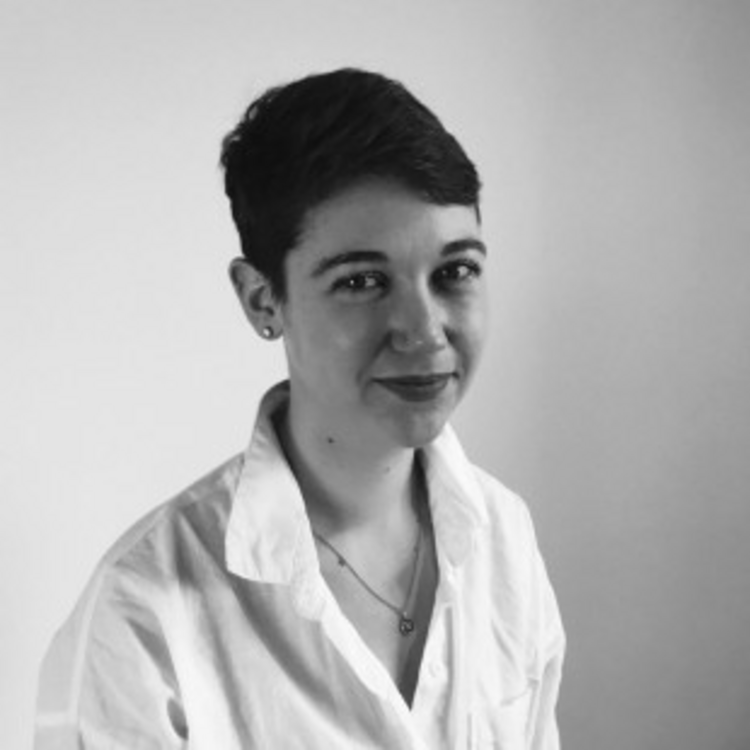
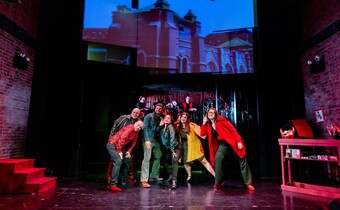


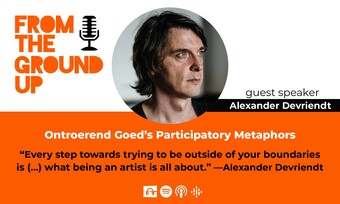


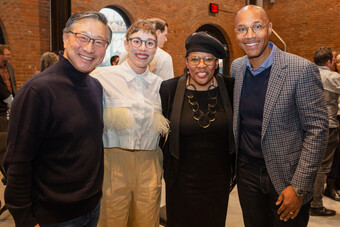

Comments
The article is just the start of the conversation—we want to know what you think about this subject, too! HowlRound is a space for knowledge-sharing, and we welcome spirited, thoughtful, and on-topic dialogue. Find our full comments policy here